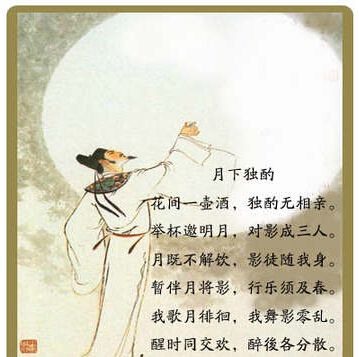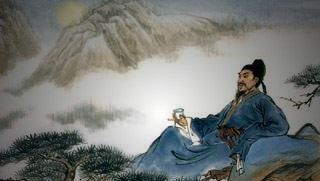英语散文:谁是世界上最幸福的人
|
Who Are the Happiest People? 谁是世界上最幸福的人 只有傻瓜才不考虑别人的利益。 抛弃自己国家的传统来创造更好的社会是一种错误的方式。 一个民族失去了自己的神话,就失去了自我。They live on a windswept island surrounded by glaciers 『冰川;冰河』and volcanoes『火山』. What makes them so content『满足的;甘心的』?他们生活在海风吹拂的小岛上,被冰川和火山所环绕着。是什么使他们如此满足? In a poll『民意调查』of 18 nations, The Gallup Organization discovered that Icelanders are the happiest people alive. All 267,809 of them. Eighty-two percent are satisfied with their personal lives. The United States ranked『位居;名列』fifth at 72 percent; Japan came in seventh with 42 percent.美国的盖洛普民意测验组织对世界上18个国家的民意测验表明:冰岛人是世界上最快乐的人。参加测试的人数为26.78万人。82%的冰岛人表示满意自己的生活;美国表示满意自己生活的人数为72%,排列第五位;日本排列第七位,人数比率为42%。Some people would say that happy Iceland is a statistical fluke『侥幸』. This is a country so small, an ordinary citizen can make an appointment to see the president.有人会说:快乐的冰岛仅仅是统计上的巧合。这个国家如此之小,普通的公民也能受到总统的接见。 True, Iceland is no utopia. Icelanders are big boozers 『酒徒』, with a fishing tradition of binge『狂欢作乐』drinking. Almost a third of the births are out of wedlock『私生的』. But that’s what makes the Gallup study so interesting. Icelanders have problems like the rest of us, yet they are happy with their lot『命运;运气』. So what gives?确实,冰岛并非天堂,冰岛有传统的打鱼豪饮的习惯,酒鬼很多,近三分之一的孩子没有父亲。然而,正因为如此,盖洛普的这项研究才显得更加有趣。因为,像我们一样,冰岛人有许多问题,但是,他们却安命乐天。这究竟是为什么呢?Consider Thorir Hlynur Thorisson, 28. For his vacation, he spent a month working 16-hour days, seven days a week, as a fishing guide. It was “heaven on earth,” he says. Then after a single night off, he was back at his regular job—on a fishing boat, working six hours on, six hours off, around the clock.让我们来看一看,一个名叫索赫·赫利纳·索雷逊的28岁的冰岛人是怎样看待生活的。索雷逊在一个月的假期中,为自己找了一份捕渔向导的工作,他一周工作7天,每天工作16个小时,他把这种生活称作“人间的天堂”。假期结束后,他只休息了一个晚上,又接着正常工作起来——在一艘轮船上,每天6小时工作、6小时休息地轮流当班。We would call Hlynur a workaholic『工作狂』, but so are most of his compatriots『同胞』. It pays off. With a per-capita gross domestic product of $19,905 (the U.S. figure is $27,541), Icelanders are among the wealthiest people on earth. Their tax dollars buy them excellent education and medical care. Iceland has the lowest infant mortality rate『婴儿死亡率』in the world, and almost the highest longevity『长寿;长命』.我们可以把赫利纳称为“工作狂”,但是,冰岛人也大多和他一样。当然,他们劳有所得,冰岛国内人均生产总值为1.99万美元(美国是2.75万美元)。他们上缴的利税换来了良好的教育和医疗保障。冰岛的婴儿死亡率位于世界之末,而寿命位于世界之首。 The dour『抑郁的;闷闷不乐的』Swiss have a well-run state and all their material needs met, too, yet no one could accuse them of a cheerful outlook.瑞士是一个秩序井然的国家,人民丰衣足食,生活富裕。可是,瑞士人却郁郁寡欢,闷闷不乐。Sociologist Thorolfur Thorlindsson of the University of Iceland believes the secret lies not in his country’s comforts, but in its age-old 『长期的;古老的』discomforts. They have taught Icelanders to enjoy what they have.冰岛大学社会学家索罗尔非·索林德森认为:冰岛人安命乐天的秘诀在于这个国家长期处于艰难困苦之中,而不在于它的舒适。这些艰难困苦教会了冰岛人“知足常乐”。Isolated『与外界隔绝的;孤立的』in the cold North Atlantic, buffeted『冲击;打击』by a hostile『敌对的;有敌意的』sea, condemned『责备;责怪』to 20 hours of darkness each day in winter, the people have for centuries lived on the vagaries『难以预测的情况』of the fish catch. “Our culture is colored『影响』by the harshness『严酷;艰苦』of nature,” says Thorlindsson. “That’s why Icelanders have a tolerant『宽容;容忍』attitude to the problems of life. They don’t expect the same sort of stability『安定;稳定』often expected in other nations.”冰岛位于寒冷的北大西洋,常年遭受着海水的无情冲击,冬天有20个小时是黑夜,人民世代以艰苦的捕鱼业为生。“我们的文化带着自然严酷的特色,”索林德森说,“这就是为什么冰岛人对生活中的问题宽容的原因。冰岛人并不像其他国家人民一样,希望得到常有的稳定。”And so it seems. Americans are considerably better off『更为富有/富裕』by material standards than ever before. Yet we seem less happy, less contented with our lot. |








